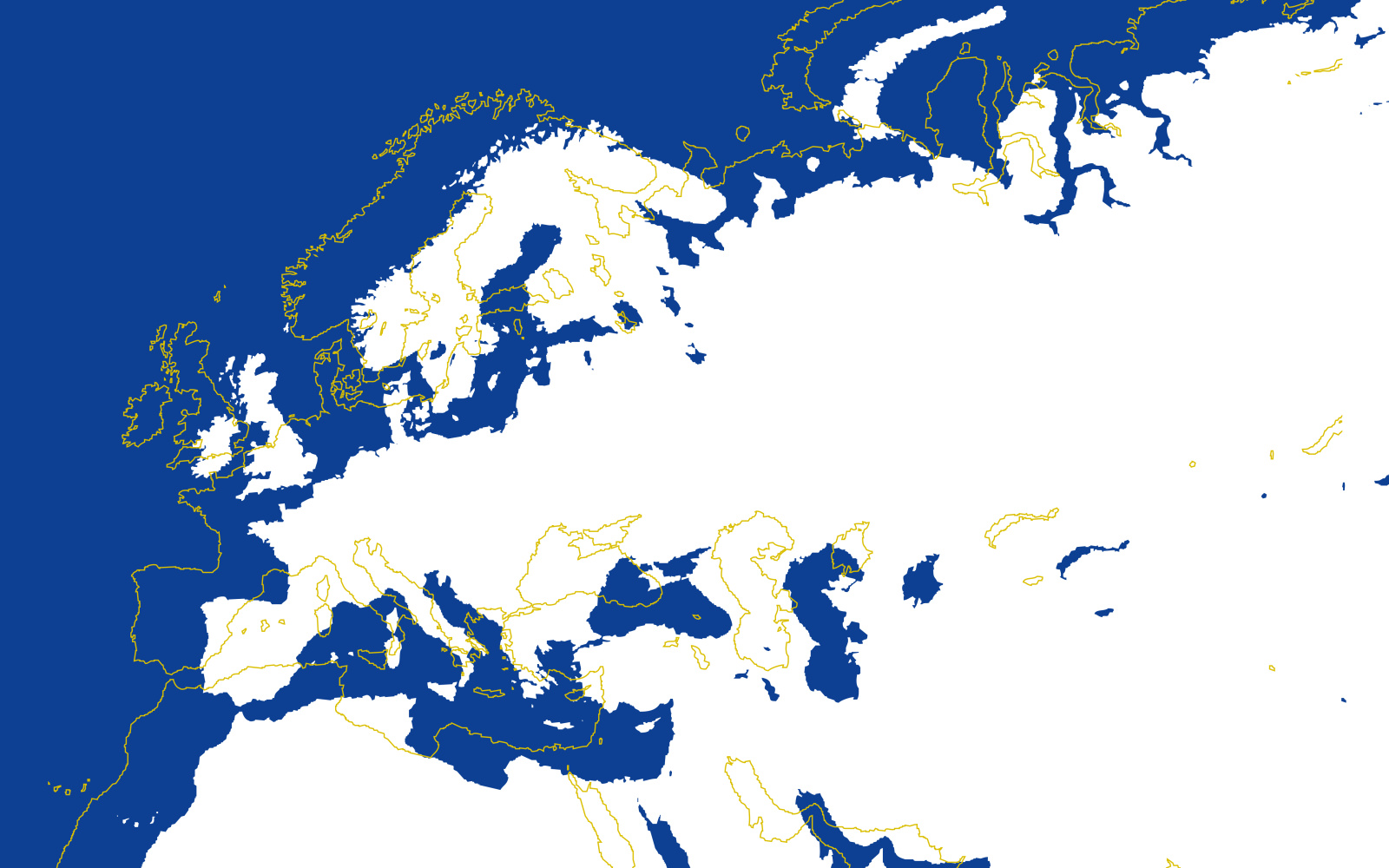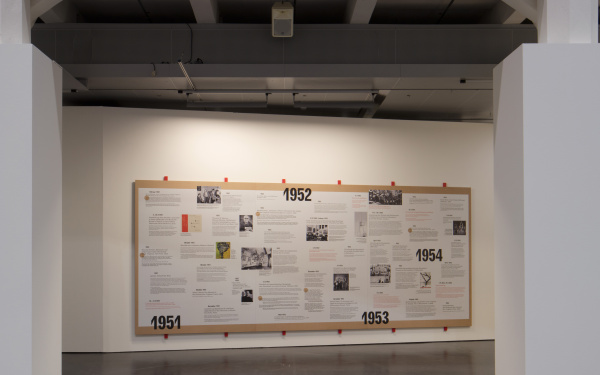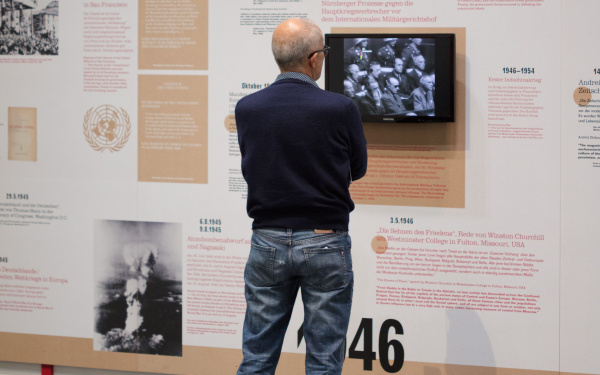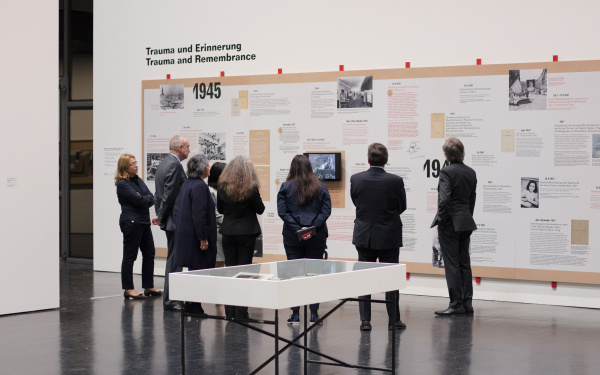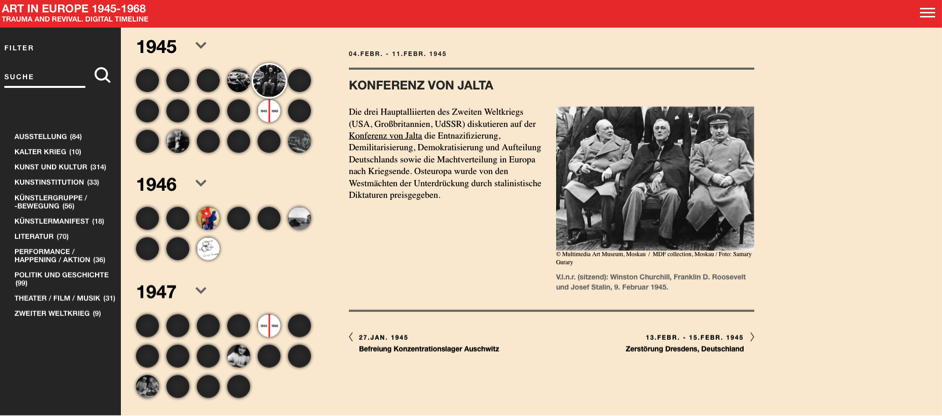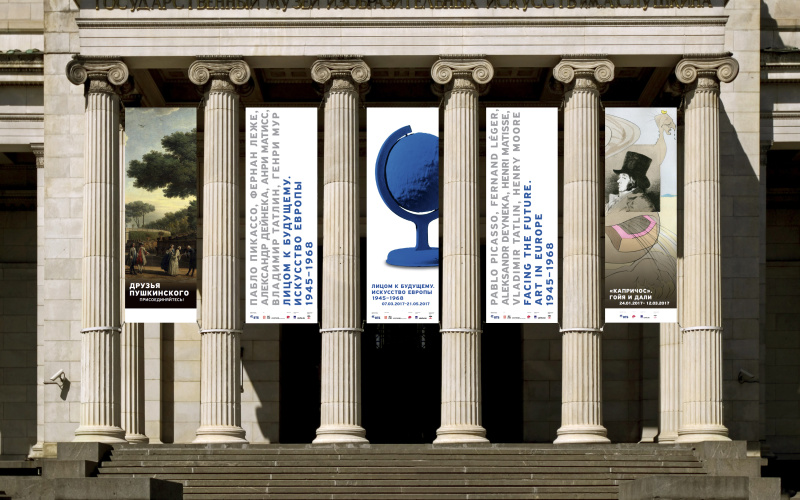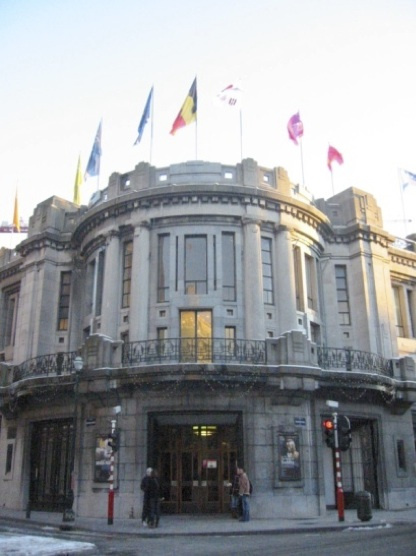EU-Project »Trauma & Revival«
Art in Europe 1945–1968. Digital Timeline
The EU-funded project »Trauma & Revival« proposes an ambitious journey to showcase and reflect on East-West cultural connections in the Cold War and today. The partners of the project are the ZKM | Karlsruhe, the Centre for Fine Arts (BOZAR) in Brussels, the Fondazione Pistoletto in Biella, the Association kim? in Riga, the Bunkier Sztuki Gallery of Contemporary Art in Poland and the University of Jyväskylä in Finland. Associated partners are the Pushkin State Museum of Fine Arts, Moscow, the State Museum and exhibition Center ROSIZO, the Austrian Cultural Forum Moscow and the Tretyakov State Gallery.
Between 2015 and 2018, the ten partners will engage one another in the interest of international cooperation, bringing together artists, intellectuals and citizens from across the continent, including Russia. The project offers a dynamic platform to revisit a shared history, change today’s perceptions and imagine new forms of cultural dialogue. It echoes the current situation in which cultural exchanges are becoming more difficult.
Through exhibitions, artist residencies, video-art programs, workshops, conferences, roundtables, concerts and a digital timeline, this project will raise meaningful questions about our current cultural-political relationships in order to move towards a common future in Europe.
Art in Europe 1945–1968. Digital Timeline
The exhibition »Art in Europe 1945–1968« (ZKM, BOZAR, Pushkin Museum), curated by Peter Weibel and Eckhart Gillen in collaboration with Daria Mille and Daniel Bulatov, features works of artists from across Europe and the Soviet Union who, in the period between 1945 and 1968, responded in their art to the rupture of civilization during the Second World War.
To date, the attention of historiography was largely focused on abstract expressionism as a symbolization of the free West, while the socialist realism embodied the conservatism of the Communist East. But today, we know that this dominant model of art history was a product of the Cold War. For this reason, the exhibition attempts to reinterpret the development of art in Europe from a pan-European perspective.
Whilst the exhibition project brings together the neo avant-garde from the East and West, it becomes evident that many new art forms (produced after the war) – from media art to conceptual art, from performance art to sound art – originated in Europe or were formulated simultaneously in Western Europe, the USA, Russia and Eastern Europe in parallel developments.
The displayed artworks are accompanied by a documentary timeline, which visualizes central political and artistic events of the past in Europe. Based on this timeline presented three-dimensionally within the exhibition, the ZKM is launching a digital timeline. As an app and responsible website, the digital timeline will be the connector between the different partner activities, such as artists’ residences, conferences and round table discussions. In addition, it is to be used as an educational tool in selected schools in Karlsruhe for history lessons.
The digital timeline is made up of two narrative lines: firstly, historic events from 1945 to 1968 (including the Yalta Conference, the construction of the Berlin Wall, the student movements of 1968 and the Prague Spring) and secondly, significant contemporary art exhibitions, artist manifestoes, campaigns, quotes, etc. It consists of historic photographs and documents, posters, books, objects and film material.
Project Team
- Exhibition curators: Peter Weibel and Eckhart Gillen in collaboration with Daria Mille and Daniel Bulatov
- Project management: Judith Bihr, Daria Mille
- Technical project management Digital Timeline: Bernd Lintermann
- Research: Judith Bihr, Paula Böttcher, Daniel Bulatov, Sergey Fonfanov, Eckhart Gillen, Daria Mille, Sophie Ribbe, Theresa Rößler, Peter Weibel
- Software Architecture: Johannes Degenhard
- Software Development: Johannes Degenhard, Martin Sotirov
- Design Digital Timeline: NONOT
- Content Management: Theresa Rößler
- Copy Editing: Greta Garle, Ulrike Havemann, Martina Hoffmann, Lonnie Legg, Jens Lutz, Miriam Stürner, Claudia Voigtländer
-
Supporters
